What is an Apology
For over 21 years, V-Day, the global activist movement that grew out of The Vagina Monologues, has galvanized women survivors to tell their stories, break the silence, and call out the systemic violence that perpetuates sexual violence against all women, including cis women, trans women, and those who hold fluid identities that are subject to gender based violence.
Yet, we haven’t seen men move into the process of true apology. Of reckoning with their actions and moving towards accountability and transformation. Now is that time.
“This as an offering, not a prescription, not a must do, not the only way. It is an offering, period. Every survivor, every person has their own journey, their own process, their own timing, what works for one person may not work for another and what works at one moment of your life may not work at another. I am simply sharing my own experience which is the only thing I truly trust. There may be things I say that are difficult and hard to hear.
I have asked many women what justice would look like after they’ve been sexually abused or battered or incested or harassed. Some women rightfully demand punishment, prison time for their perpetrators, public exposure, loss of jobs, end of careers. Some women simply want their perpetrator to disappear forever. But many women I’ve spoken to say that in order to heal, in order to move on, what they want and need is for their perpetrator to acknowledge the truth of what he has done. They want their perpetrator to recognize them as a full and real human being – to acknowledge the harm he has caused and to feel remorse and heart break. They need to see their perpetrator has taken responsibility for his actions and done extensive work to understand what made him commit this violence. They need to know the depth of his reckoning will prevent him from ever committing violence again.
Our imagination is our most powerful weapon. We can conjure the dead. We can rewrite their stories. We can make them see us as they have never seen us. We can get them to reveal themselves and see themselves and we can transform the underlying narrative that has us caught in a cycle of violence, punishment more violence.”
– V (FORMERLY EVE ENSLER)
– Anita Hill
So many of us have been waiting. From Anita Hill and Christine Blasey Ford to the Comfort woman in the Philippines who were kidnapped and raped by Japanese soldiers during World War II, standing every Thursday at vigils for seventy years, waiting, waiting for accountability, for the apology to come. They are the activists leading the movement in the streets, inspiring younger generations to fight to end sexual violence as a war tactic and in conflict, yet they have never heard the words they have longed to hear.
– Marc Maron, creator/host “WTF with Marc Maron”
We have devoted our lives waiting for this truth to be uncovered because it lives in the center of everything we are and are not. It’s the stoplight in our nervous systems. A lingering lie can be an undeniable stain that controls and defines. That lie is like a cancer cell that first invades and then spreads through the whole system. That lie begins to choke our voice, our trust in people, in love, in other women, in ourselves.
Through our work in V-Day, One Billion Rising and the City of Joy, we have seen that transformation, for many, comes when women feel free from their past. When they are given a genuine apology that goes beyond simply saying “I am sorry,” or when something – a process, a life event – allows a survivor to make peace, to feel the weight lifted.
V’s book The Apology is published by Bloomsbury and available here.
What is an Apology
In the process of developing this site, we asked advocates “What is an Apology?”
This is what they said:
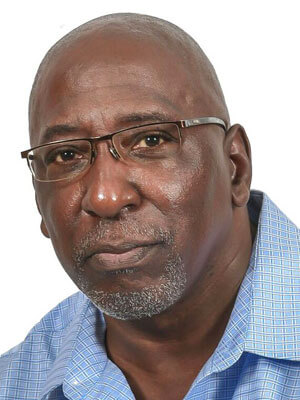 “As a man, when I think of an apology, particularly to a woman, there are a few factors that are of extreme importance. First, did I truly and humbly listen to the impact of my behavior? Second, did I set aside my intentions, knowing that even if they were pure, the impact of my behavior trumps my intentions.
“As a man, when I think of an apology, particularly to a woman, there are a few factors that are of extreme importance. First, did I truly and humbly listen to the impact of my behavior? Second, did I set aside my intentions, knowing that even if they were pure, the impact of my behavior trumps my intentions.
Male socialization has taught me that when I interact with women, it’s okay to control, justify, rationalize and minimize. All of these tactics are obstacles to a true apology. I must listen. I must be teachable. I must show empathy. And finally, I must own my behavior and be accountable for it.”
TONY PORTER, CEO of A Call to Men
 “When you’re late to dinner or step on someone’s foot an “I’m sorry” will suffice. It’s easy. When real harm is done it’s a different story. To acknowledge one has done harm, vulnerability is essential because within vulnerability lives humility and no meaningful apology can be made in the absence of humility. Humility is the essence of AA’s 3rd step–accepting a higher power. Humility softens the dark, hard place in which entitlement and ego are encased and conjures it into soul. This takes time and intention and, guess what: You can tell when someone has done the work.”
“When you’re late to dinner or step on someone’s foot an “I’m sorry” will suffice. It’s easy. When real harm is done it’s a different story. To acknowledge one has done harm, vulnerability is essential because within vulnerability lives humility and no meaningful apology can be made in the absence of humility. Humility is the essence of AA’s 3rd step–accepting a higher power. Humility softens the dark, hard place in which entitlement and ego are encased and conjures it into soul. This takes time and intention and, guess what: You can tell when someone has done the work.”
JANE FONDA, actor/V-Day Board Member
 “Since I had the privilege of reading « The Apology », I was moved and I knew from my own experience that it can be used as a powerful tool of healing…So many religious leaders mostly from the US and Canada use to come here, organise huge meetings to ask the survivors and the people to forget and forgive the atrocities in the name of « Jesus »… How can you forgive someone who never beg for pardon ???? our « state » who is supposed to protect us, most of the time denies or minimize the atrocities women and girls survived.
“Since I had the privilege of reading « The Apology », I was moved and I knew from my own experience that it can be used as a powerful tool of healing…So many religious leaders mostly from the US and Canada use to come here, organise huge meetings to ask the survivors and the people to forget and forgive the atrocities in the name of « Jesus »… How can you forgive someone who never beg for pardon ???? our « state » who is supposed to protect us, most of the time denies or minimize the atrocities women and girls survived.
After reading the new book of Eve, I asked some of our girls at COJ and also some of our staff to write themselves letters from their perpetrators begging for pardon…the impact exceeded my expectations, some girls were moved to tears and told us that now they feel they forgave, it was really bizarre because I think when you are writing this apology, you live your story, you put all your anger and also your wishes on a piece of paper knowing that all these years you were waiting for that.
It’s difficult to then make a difference between the reality and the fiction…
One of our senior psychologist did the same exercise and then came weeping, confessing for the first time how she was abused for 3 years as a teenager and that it was the first time she talked about her multiple rapes.
I do have a lot of incredible examples and that’s the reason, I decided from now to include this exercise in our therapy, women and girls will write letters anonymously and then we will read them in public.”
CHRISTINE SCHULER-DESCHRYVER, Director of City of Joy and V-Day Congo
 “An apology is where human action meets divine spirit. It can be so tender, brave and beautiful a thing that it has the power to free the injured soul from the curse of victimhood and suffering. At its most heartfelt an apology promises profound liberation for both the accuser and the accused.”
“An apology is where human action meets divine spirit. It can be so tender, brave and beautiful a thing that it has the power to free the injured soul from the curse of victimhood and suffering. At its most heartfelt an apology promises profound liberation for both the accuser and the accused.”
THANDIE NEWTON, actor/V-Day Board Member
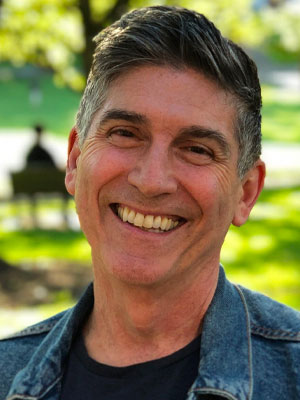 “An apology is more than just a regretful acknowledgment of an offense or failure; it is the cry of the self to be fully seen with all its imperfections. As my father lay dying, he called me to apologize for not having been a better father. He listed his many failures and then asked for my forgiveness. I was stunned by his unexpected acknowledgment of a truth that I had lived with my entire life. Moved by his courage and humility, I was able to forgive him and together we cried. That apology was the greatest gift my father ever gave me. He offered me himself, broken and imperfect. His willingness to be seen, allowed us, for the first time, to live in the same story. We’ve been living there ever since.”
“An apology is more than just a regretful acknowledgment of an offense or failure; it is the cry of the self to be fully seen with all its imperfections. As my father lay dying, he called me to apologize for not having been a better father. He listed his many failures and then asked for my forgiveness. I was stunned by his unexpected acknowledgment of a truth that I had lived with my entire life. Moved by his courage and humility, I was able to forgive him and together we cried. That apology was the greatest gift my father ever gave me. He offered me himself, broken and imperfect. His willingness to be seen, allowed us, for the first time, to live in the same story. We’ve been living there ever since.”
JAMES LECESNE, actor/author/LGBTQIA rights activist
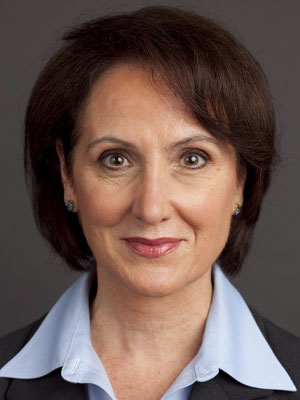 “A genuine apology is a reckoning, the creation of a common understanding of events past. A genuine apology can heal and build mutual understanding. A true apology begins with the recognition that a person’s words or deeds have harmed another. This recognition obliges that person to take responsibility for his/her/their actions, to express sincere regret, and to resolve to behave differently in the future. To deeply acknowledge responsibility, a person has to interrogate his own intention and understand the values and assumptions that led him to act as he did. This can be challenging, especially for someone accustomed to being in control. To feel regret requires empathy with and compassion for the one who has been harmed. This seems especially hard when gender, class, and power divides are involved. The final step of a genuine apology – a promise to behave differently in the future – can restore trust in intimate relationships and create a joint aspiration for the future in public relationships. It creates accountability. A genuine apology, involving emotional engagement, self-reflection, and vulnerability, is an act of courage. A genuine apology has the power to transform.
“A genuine apology is a reckoning, the creation of a common understanding of events past. A genuine apology can heal and build mutual understanding. A true apology begins with the recognition that a person’s words or deeds have harmed another. This recognition obliges that person to take responsibility for his/her/their actions, to express sincere regret, and to resolve to behave differently in the future. To deeply acknowledge responsibility, a person has to interrogate his own intention and understand the values and assumptions that led him to act as he did. This can be challenging, especially for someone accustomed to being in control. To feel regret requires empathy with and compassion for the one who has been harmed. This seems especially hard when gender, class, and power divides are involved. The final step of a genuine apology – a promise to behave differently in the future – can restore trust in intimate relationships and create a joint aspiration for the future in public relationships. It creates accountability. A genuine apology, involving emotional engagement, self-reflection, and vulnerability, is an act of courage. A genuine apology has the power to transform.
Any statement that contains an if is not an apology (“if my actions/words hurt you, I am sorry”). “If” suggests, “you may not have been harmed” or “I may not have been responsible.” It implies that “if you were less sensitive” or “just understood what was in my heart,” no apology would be needed – i.e., the fault likes with you. Men and people with privilege use “if” apologies when they don’t want to interrogate their own motives. Men fear the vulnerability that true apologies require because self-reflection = self-doubt = weakness, the greatest male sin. People in power resist examining the impact of their actions on perceived subordinates and cloak their motives in “the good of the organization.” Without self-interrogation by those in positions of authority, we all lose the possibility and liberation that “aha” moments bring.”
KATHERINE MCFATE, author/V-Day Board Member
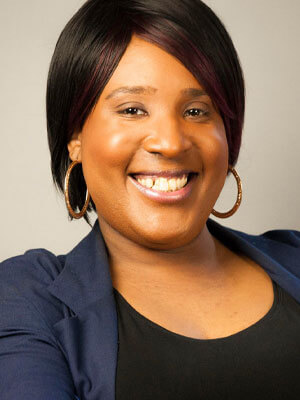 “An apology is two things. You giving yourself permission to forgive the person who harmed or hurt your feelings in a deep way where it effects how you view and move in the world and how you view your overall self.
“An apology is two things. You giving yourself permission to forgive the person who harmed or hurt your feelings in a deep way where it effects how you view and move in the world and how you view your overall self.
The other aspect is when you have harmed someone and they do not want to receive your apology. You can offer it to you the universe so you can move on.
When you do that it’s a weight off your shoulders—the good and bad and it will change how you move in the world. It’s a way of moving from coping to releasing.”
LALA ZANNELL, Womanity Project
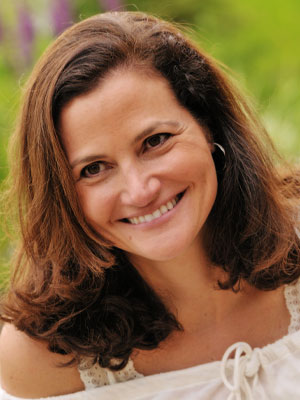 “The premise for me is that an apology is real if it comes from the heart, if it is genuine and sincere. Trust your gut to recognize one as such.
“The premise for me is that an apology is real if it comes from the heart, if it is genuine and sincere. Trust your gut to recognize one as such.
I believe apologies have a cultural origin – being multicultural I’d like to share the translation of the word in Italian and Spanish. In Italian, there is not one word for “Apologize,” it is “Chiedere scusa/perdono,” literally translated, “Ask for excuse/forgiveness” and “I’m sorry” is “Mi dispiace,” literally translated “It displeases me.” You can notice a sense of innate guilt – to say I’m sorry in Italian is to be displeased with oneself, with one’s behavior.
In Spanish, to say “I’m sorry” is, “Lo siento,” literally “I feel it.” This resonates greatly with me. An apology in my opinion, is meant to be felt – deeply.
An apology however goes beyond language – an apology is an acknowledgement of wrongdoings, and can come in many forms. It can be accomplished with words and/or with actions.
It’s important because it shows a commitment to be honest. It’s important because it heals and liberates. If we are apologizing truthfully and sincerely and come from the heart, we are free to move forward in our lives whether or not we are forgiven. There should not be an expectation of forgiveness – that’s up to who receives the apology to decide.”
LISA SCHEJOLA AKIN, philanthropist/V-Day Board Member
 “An apology is the acknowledgement of a wrong done to someone. To be effective, it must be sincere, honest and express true remorse.
“An apology is the acknowledgement of a wrong done to someone. To be effective, it must be sincere, honest and express true remorse.
The best kind of apology comes from the heart and expresses regret for any unhappiness or harm unjustly caused to another person. An apology is important because it acknowledges the value of the other person and the harm, even if unintentional, done to that individual.
It allows the wronged person to be recognized and validated. The one giving the apology is saying, “I see you. You matter.
You did not deserve to be hurt by me. I accept that I was wrong and am the one at fault, and I have true remorse for what I did to you.” Only through a sincere apology can the perpetrator begin the process of redemption and, most importantly, the victim finally become free.”
CAROLE BLACK, philanthropist/V-Day Board Member
 An apology is about accountability. It requires: critical self-reflection, a deep analysis of power, and the hard work of sitting with the possibility of never being forgiven. Ultimately, a meaningful apology leads to a deep transformation, for both survivors and perpetrators.
An apology is about accountability. It requires: critical self-reflection, a deep analysis of power, and the hard work of sitting with the possibility of never being forgiven. Ultimately, a meaningful apology leads to a deep transformation, for both survivors and perpetrators.
Accountability requires the understanding of the impact of our actions onto the victim(s), of learning how those actions changed and hurt someone. It requires a deep analysis of power, in relation to the one that was harmed, and also in relation to the abuser’s access and use of power at many levels, for example: familial (incest), institutional (racism), structural (genocide), etc. For the abuser it requires a new way of being in the world, of shifting one’s relationship to those less powerful. For the survivor it provides a validating experience. For both, the apology can be transformative.
When we talk about apologies, we tend to rush to the part about forgives, in part, because psychologically, once we’ve recognized the harm we’ve done, it is unbearable to sit with the painful realization of our actions and the consequences that comes because of them. Yet, this sitting with it, this pain, this possibility of never being forgiven, is necessary for transformation.
For the survivor, an apology, perhaps, excises the cancerous psychic tumor and restores emotional integrity and the possibility of empowered agency. An apology validates the injury, creating an opportunity for rebirth. An apology restores faith and trust in humanity.
An apology occurs over time, sometimes over several conversations; it is a process, rather than an event.
SILVIA M. DUTCHEVICI, MA, LCSW, President & Founder of Critical Therapy Center
List in formation.
Write your own apology here, and if you have an idea of what an apology is, we’d love to know, please send it to whatisanapology(at)vday.org